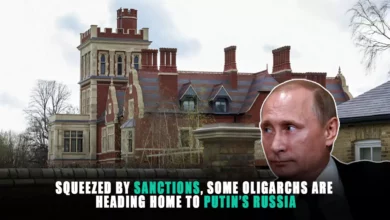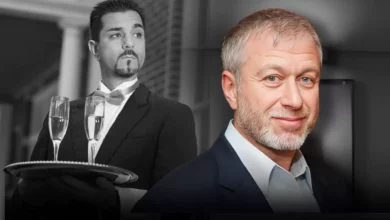Iran Deputy FM Holds Meeting with Hamas in Moscow: Russian Media Reports
"Iran's Deputy Foreign Minister Engages with Hamas in Moscow: Highlights from Russian Media
A senior Iranian diplomat met Hamas in Moscow following discussions with Russian diplomats. On Friday, Russian and Iranian media outlets asserted that Moscow is attempting to strengthen its role as a mediator in the conflict between Israel and Hamas.
Ali Bagheri Kani, Iran Deputy FM, emphasized the significance of a cease-fire, lifting the embargo of the Gaza Strip, and delivering humanitarian supplies at the meeting with Moussa Abu Marzouk, who represented Hamas. Russian state news outlets carried a statement that the Iranian Embassy in Moscow released on Friday, which is the source of this information.

Abu Marzouk thanked Bagheri Khani for Iran’s support of the Palestinian people, according to the state-run Iranian news agency, IRNA.
Abu Marzouk had talks with Russian diplomats on Thursday before the summit. According to the Russian Foreign Ministry, Israel harshly denounced his visit to Moscow, which was centered around the issue of freeing hostages in the Gaza Strip and assisting in the evacuation of foreign nationals.
After Hamas’s October 7 fatal invasion into southern Israel, despite the ongoing conflict in Ukraine, Russia has been trying to project itself as a mediator. This has been highlighted in the talks. Within the Israel-Hamas conflict, at least nineteen Russian nationals have died.

Vladimir Putin, the president of Russia, said earlier this month that Moscow could act as a mediator because of its good relations with both Israel and the Palestinians, stressing that they were impartial toward neither party.
Notwithstanding its pretense of objectivity, Russia had already sponsored a resolution in the UN Security Council denouncing violence against civilians, although it made no mention of Hamas. The council finally rejected this statement.
Declaring that Russia’s decision to accommodate Hamas leaders in Moscow amounted to “an endorsement of terrorism,” the Israeli Foreign Ministry called for the delegation’s immediate departure from Russia.
In response, Dmitry Peskov, a spokesman for the Kremlin, stressed the significance of keeping in touch with all parties on Friday. Whether or not Hamas, Iran, and Russia’s representatives met together on Thursday is yet unknown.
In remarks made available to Russia’s official RIA Novosti news agency on Friday, Abu Marzouk stated that he and Russian diplomats discussed issues related to the Palestinian situation. In contrast to the story that the United States is trying to tell, they looked at ways that people may work together to jointly create a future for the area and all of humanity.
He noted that Russia’s invitation to Hamas to visit was a “message to the entire world that Russia considers Hamas not a terrorist but a liberation movement that defends the rights of its people and wages a war for justice.”
Moscow has been cautious in its remarks on the Israeli-Hamas conflict, despite recent increases in commerce, diplomatic ties, and security cooperation. However, as Hamas’ visit demonstrates, Moscow thinks that keeping ties to the group and its supporter, Iran, is crucial to keeping its hold on the region.
According to Washington-based think tank the Carnegie Endowment for International Peace, for Moscow, the war in Gaza “is an opportunity to pitch itself … as a diplomatic partner” in a region it considers “strategically important.”
Following Putin’s intervention into Ukraine, a large number of Russians have relocated to Israel, further solidifying their trade and security ties since the fall of the Soviet Union. Their relationship has been strained by the invasion, though; Israel has shown support for Kyiv but has refrained from arming it, and many Israelis were outraged by Putin’s claim that Volodymyr Zelenskyy, the president of Ukraine who is Jewish, is connected to neo-Nazism.
Moscow’s strengthening of its ties with Iran is another result of Putin’s military campaign in Ukraine. Iran provided Moscow with a large number of Shahed explosive drones, which the Russian military has used against Ukraine’s energy infrastructure and other crucial installations. Moreover, it has been stated that Russia, which has set up a factory for the production of drones, has received drone technology from Iran.
It is expected that Moscow will send Iran cutting-edge fighter planes and other modern weapons in return.
Bagheri Khani met with other senior Russian officials on Thursday, including Mikhail Bogdanov, Russia’s deputy foreign minister and the Kremlin’s envoy to the Middle East. According to the Russian Foreign Ministry, they also talked about ending the hostilities in Gaza and providing humanitarian relief to the Palestinian people.
READ MORE :
- Kursk Nuclear Plant: Russia Says Ukraine Mounted Drone Attack
- Billionaire Mikhail Fridman loses a High Court battle over 168-year-old house care for a £44 million art collection
- Death threats against human rights lawyer Magomed Alamov must be promptly investigated








